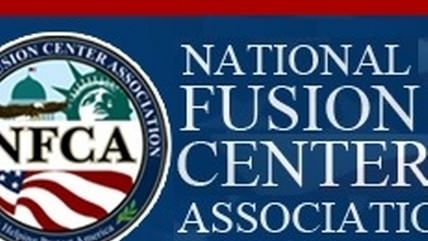Fusion Centers: Expensive and Dangerous to Our Liberty
A new report says they're fraught with waste and abuse and have whittled away at civil liberties protections.


A domestic surveillance system established after the terrorist attacks of September 11 collects and shares intelligence on a mass scale about "the everyday activities of law-abiding Americans, even in the absence of reasonable suspicion," according to a new report.
The report, released this month by the Brennan Center for Justice, a nonpartisan policy institute at NYU School of Law, found that law enforcement data sharing programs organized by the Department of Homeland Security (DHS) are fraught with waste and abuse and have whittled away at civil liberties protections while evading sufficient oversight.
"Until 9/11, police departments had limited authority to gather information on innocent activity, such as what people say in their houses of worship or at political meetings," the report explains. "Police could only examine this type of First Amendment-protected activity if there was a direct link to a suspected crime. But the attacks of 9/11 led law enforcement to turn this rule on its head."
Amidst unprecedented focus on overreach at the National Security Agency (NSA), many Americans have come to understand the risk of being spied on by the government in their electronic communications. But the intelligence-sharing hubs coordinated between DHS and state and local police departments around the country, called "fusion centers," show there is extensive surveillance of Americans' physical and social activities as well.
In 2012, a Senate investigation found that fusion centers cost taxpayers billions of dollars, but disrupted no actual terrorist plots. The investigation said the intelligence gathering was "oftentimes shoddy" and "more often than not unrelated to terrorism" while "sometimes endangering citizens' civil liberties."
As the Associated Press reported at the time of the Senate report, fusion centers often targeted the First Amendment activities of Americans, "circulating information about Ron Paul supporters, the ACLU, activists on both sides of the abortion debate, war protesters and advocates of gun rights."
Fusion centers in Boston, Massachusetts, filed scores of "intelligence reports" on anti-war activists, according to findings from the American Civil Liberties Union (ACLU).
"We now have proof of what peace groups and activists have long suspected: Boston Police officers have worked within the local fusion spying center, the Boston Regional Intelligence Center (BRIC), to monitor the lawful political activity of local peace groups and track their movements and beliefs," the ACLU's Nancy Murray wrote last year.
"This information is fed into an array of federal information sharing networks, creating mountains of data," the Brennan Center report explains, describing the apparent civil liberties infringements as "potentially illegal."
"In some jurisdictions," the report warns, "police have used aggressive information-gathering tactics to target American Muslim communities without any suspicion of wrongdoing. Such practices have not generated investigative leads or proven especially useful in preventing potential terrorist attacks."
Fusion centers collect information on "such innocuous and non-criminal activities as photography, looking through binoculars, and taking notes."
Other activities collected by law enforcement officials and stored in fusion centers included:
- Individuals who stay at bus or train stops for extended periods while buses and trains come and go;
- Individuals who carry on long conversations on pay or cellular telephones;
- Individuals who order food at a restaurant and leave before the food arrives or who order without eating; and
- Joggers who stand and stretch for an inordinate amount of time.
These complex intelligence programs are comprised of work by federal, state, and local authorities and are deliberately decentralized. According to the Brennan Center, proper "intelligence oversight is extremely uncommon at the state and local level."
The report urges significant operational and oversight reforms to the program, including requiring police and intelligence officials to adopt basic "reasonable suspicion" standards for collecting information on citizens and to "prohibit the collection, maintenance, or dissemination of information that relies on race, ethnicity, national origin, or religious affiliation as a factor in establishing reasonable suspicion."
The Brennan Center report does not include recommendations for imposing accountability on federal, state, and local authorities for violating the constitutional rights of law-abiding Americans.
The lack of accountability mirrors that found in the NSA surveillance programs revealed by Edward Snowden. Last week, a federal judge ruled that NSA's collection of virtually every American's phone records was likely unconstitutional and "almost Orwellian" in its scope. Judge Leon, a George W. Bush appointee, said the authors of the Constitution would be "aghast."
And the secret FISA court tasked with overseeing NSA programs found in 2011 that the NSA "frequently and systematically violated" statutory laws governing how intelligence agents can search databases of Americans' telephone communications and that NSA analysts deliberately misled judges about the nature of the programs in order to get court approval.
"The rules have been broken, and the rules have been broken a lot," Senator Ron Wyden, who sits on the Senate Intelligence Committee, said in October.
Systematically violating both statutory and constitutional restrictions and infringing on the Fourth Amendment rights of millions of Americans' as a matter of policy are no minor transgressions. They are crimes. But no NSA or executive branch official has been called to account.
As the ongoing controversy over the NSA leaks clearly demonstrates, 9/11 prompted the intelligence community to seriously exceed its authority and expand its capabilities to spy on citizens in the name of foiling terrorists. Despite serious offenses, an erosion in the rule of law has prevented government officials from being prosecuted. And the Department of Homeland Security's fusion centers are no different.


Show Comments (86)